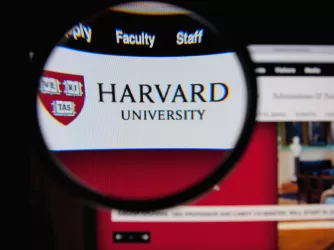Table of Contents
'Daily Kansan' Highlights KU's Red-Light Speech Codes, but Point Remains to be Made About FIRE's Speech Code Research
In an article published yesterday, The University Daily Kansan, a student newspaper at the University of Kansas (KU), helpfully brings attention to KU's speech codes. The article, written by student Bobby Burch, in particular highlights KU's two "red light" harassment policies. Quoting me, the article breaks down the First Amendment problems with these policies:
FIRE claims that the University's "Housing Handbook" contains two harassment and sexual assault policies that limit free speech. One University policy that the group takes issue with states that harassment includes conduct that "purposely humiliates another person, stalks another person, or makes degrading comments or prank phone calls."
Majeed said that FIRE has problems with these University policies in two ways.
First, he said, the University's policies conflict with the Supreme Court's definition of harassment outlined in Davis v. Monroe County Board of Education, which states such conduct must be "so severe, pervasive, and objectively offensive that it can be said to deprive the victims of access to the educational opportunities or benefits."
"You can see that in both of these policies what the University defines to be sexual harassment falls short of that Supreme Court standard," Majeed said.
Majeed said FIRE's second problem with the policies is that they explicitly prohibit speech that is protected by the First Amendment.
The second harassment policy, which is not directly quoted in the article, states that examples of sexual harassment at KU include "unwelcome comments of a sexual nature" and "unwelcome sexually explicit statements, questions, jokes, gestures, or anecdotes." Like the first policy's ban on expression that "purposely humiliates another person" as well as "degrading comments or prank phone calls," this encompasses a great deal of expression entitled to constitutional protection. While some of the speech falling into these categories undoubtedly would offend or anger some individuals, that does not diminish the fact that it is legally protected. As a public university bound by the First Amendment, KU should know that it has an obligation to respect freedom of speech and to teach its students the right lessons about life in a free society, and should be especially vigilante about protecting unpopular or controversial expression.
As such, I am glad that Burch's article draws attention to the need to revise KU's speech codes, and hopefully will raise awareness and activism among the university's student body. After all, there is plenty of work to be done on this score; in addition to the two red-light policies, KU currently maintains three yellow-light policies.
Notably, the article also contains this passage pertaining to FIRE's work, specifically our annual speech code reports:
However, there are some critics of FIRE's objectivity, including Jon B. Gould, an associate professor at George Mason University and author of "Speak No Evil: The Triumph of Hate Speech Regulation."
Gould wrote an article in The Chronicle Review that claimed FIRE's political bias motivates its evaluations and reporting on U.S. academia.
"FIRE largely fails to explain how it reaches its overly broad conclusions," he wrote. "Not only are most college speech policies constitutional, but also many of the anti-discrimination policies that FIRE targets actually protect higher-education institutions - and by extension academic freedom and opportunity."
While I appreciated the opportunity to speak with Burch for this article, my point in response to this particular argument did not make it into the final piece, so I will repeat it here. In a nutshell, our conclusions about the prevalence of speech codes are not at all "overly broad," because the research for our annual reports is so comprehensive and takes in such a large cross section of schools from around the country. This is a not a new argument for us. Indeed, in response to the Jon Gould article in question (subscription required), we previously penned a series of blog posts demonstrating clearly that the methodology for our speech code reports holds up, and substantiating our claim that the vast majority of colleges and universities in the country fail to uphold their legal obligations under the First Amendment (in the case of public institutions) or to abide by their own stated promises of free speech (in the case of private institutions).
While interested readers can browse through our previous blog posts responding to Gould's critiques (I particularly recommend this one and this one), I will simply posit here that analyzing the speech policies at 390 colleges and universities from across the country, as we do every year and most recently in our 2011 Spotlight report (PDF), gives us sufficient context to allow us to make our claims with confidence (for instance, our finding that 67 percent of the schools surveyed for that report maintain at least one red-light policy that clearly and substantially restricts free speech). FIRE is hardly going out on a limb in saying that that the prevailing culture for free speech at the vast majority of campuses is not a good one. Again, I encourage readers to go through our previous blog posts responding to Gould for much more on this topic.
Our thanks to Bobby Burch and the Daily Kansan for their coverage of KU's speech codes.
Recent Articles
FIRE’s award-winning Newsdesk covers the free speech news you need to stay informed.

Revoking Harvard’s tax-exempt status will threaten all nonprofits

Grandpa’s advice for the new wave of American censors

FIRE POLL: Only 1/4 of Americans support deporting foreigners for pro-Palestinian views
